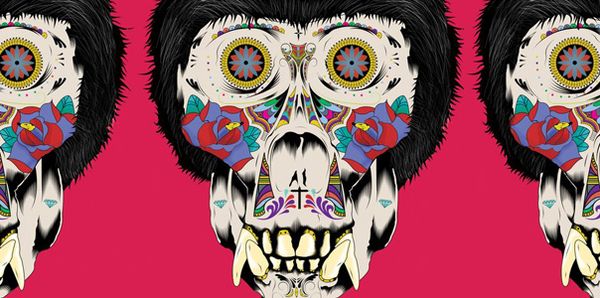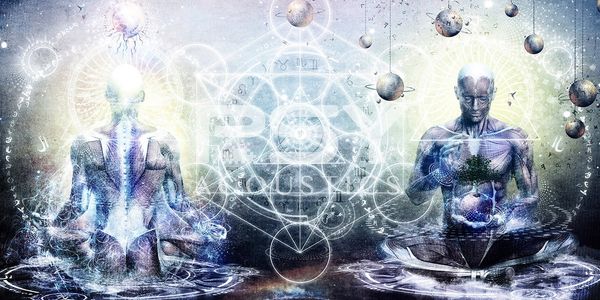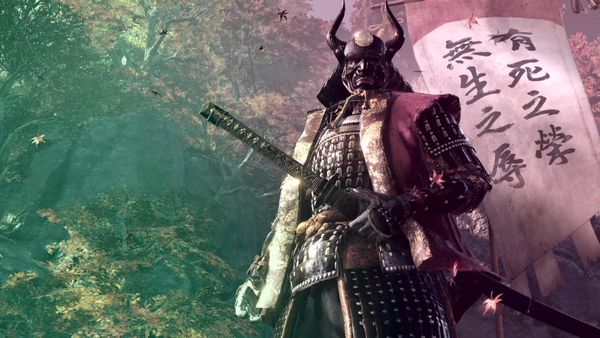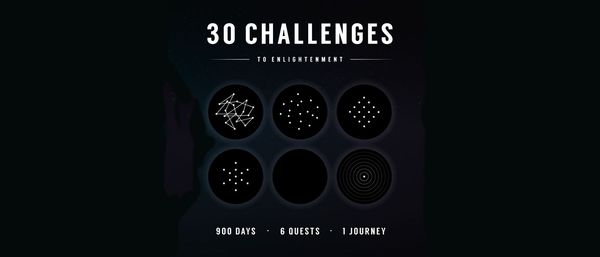Dan • • 4 min read
The Non-Conformist Samurai & A Cage Full Of Monkeys

Miyamoto Musashi (1584-1645) was a Japanese Buddhist, Kensei*, Rōnin**, and all-round badass. He was a legendary dualist, unrivalled in his skills with a blade, and highly respected by his peers, yet at the same time he was an educated scholar of religion and philosophy. However, most people (myself included until recently) have never heard of him, or his teachings, despite his impressive reputation (I highly recommend reading up on him).
I recently stumbled across a succinct work that Musashi wrote shortly before his death, called the Dokkodo or ‘The Way to be Followed Alone’. It consists of twenty-one precepts aimed at personal development and encapsulates the knowledge he had gained throughout his epic life. I read through them with the intent of broadening my own life philosophies, and discovered a new perspective on a principal frequently discussed around here: seeking an alternative to social norms, or as it appears in the Dokkodo:
Do not act following customary beliefs
This initially seemed like yet another reiteration of the whole ‘don’t be a sheep’ teaching, however after re-reading it a few times, it began to shed new meaning.
Everyone knows, that as a society, we are deeply invested in the school-work-consume-retire path in life. It has become, as the precept so eloquently puts it, customary. Musashi’s wording made me realize, however, that social norms, or customs, are just beliefs. We are beings of habit, and, in general, our lifestyle choices have remained virtually the same for decades, essentially becoming tradition, as we believed it to be the most efficient use of ones limited time on this good earth. In my opinion, going to university to get a degree so you can get a job and settle down to start a family is arguably just as unnecessary as going to church every Sunday, owning expensive furniture, or pimping out your car with hydraulics and neon lights.
It is becoming ever more apparent, that the current social norms are flawed. We are taught that you have to get a degree to get a good, well-paying job. But why do we need a well-paying job? Well so we can buy and consume things of course. We live in a capitalist society, where we are all encouraged to keep the economy afloat, just so the guys at the top can earn a little more.
With the system so obviously broken, one wonders why we continue to conform to it, generation after generation. I believe a three-part experiment conducted by G. R. Stephenson in 1967 nicely demonstrates how we have become chained down by tradition:
Part 1: Get them wet
Stephenson began by locking five monkeys in a cage. In the cage was a ladder with food at the top. As expected, one of the monkeys clambered up the ladder to get at the tasty treat. However upon attempting this, the observing scientists blasted him with ice-cold water from a hose and also soaked the other four monkeys who had made no attempt to get at the food. This was repeated until the monkeys were conditioned to not climb the ladder.
Part 2: Transmission
The second part of the experiment is where things get interesting. One of the monkeys was replaced with an unconditioned one. Naturally, it too scrambled up the ladder to eat the food. The other four monkeys, knowing what would happen, turned on the newcomer and beat it up. This happened several times until the new monkey learned to not go for the food. Note that no water was sprayed in this part, or the next part of the experiment. Conditioning was done entirely by the other monkeys.
The scientists continued to replace the monkeys who were conditioned with the cold water with new ones, and again the newcomers learnt not to climb the ladder by way of being attacked by the others.
Part 3: Learned Helplessness
All the monkeys had been replaced. None one of them had received a cold spray of water, yet none attempted to climb the ladder. If we could ask the monkeys why they didn’t climb the ladder, we could expect an answer along the following lines:
“I don’t know. It’s just the way things are around here.”
Sound familiar?
So how do we go about changing things? Our old friend Musashi has one suggestion in his Dokkodo:
“Do not seek to possess either goods or fiefs for your old age”
To quote Tyler Durden from Fight Club: “The things you own, end up owning you”. We live in a material capitalist society where we are taught brainwashed to buy and consume, another customary belief. We are bound only to this way of life by tradition. “It’s just the way things are around here”.
I truly believe that in my old age, happiness will not come from the Aston Martin I saved up for throughout my life, or the five-bedroom house in the Alps, but from my life experiences. I hate to sound cliché but I really believe it to be true. You can get much more happiness out of immaterial things such as helping out at a homeless shelter, or experiencing a new culture in a foreign land. These things stick with you for a life-time; your iPad will not.
I’ve discussed just two of Muashi’s precepts, but there are twenty-one in total. I encourage you to read through them, and see if you find yourself looking at things with a new perspective. Sometimes all it takes is for someone (such as a badass, non-conformist samurai) to word things a little differently.
Don’t be afraid to destroy social norms. Create your own.
*Kensei: honorary title given to someone of legendary swordsmanship. ** Rōnin: a samurai with no lord or master.
Original image by rancidpunxunite










